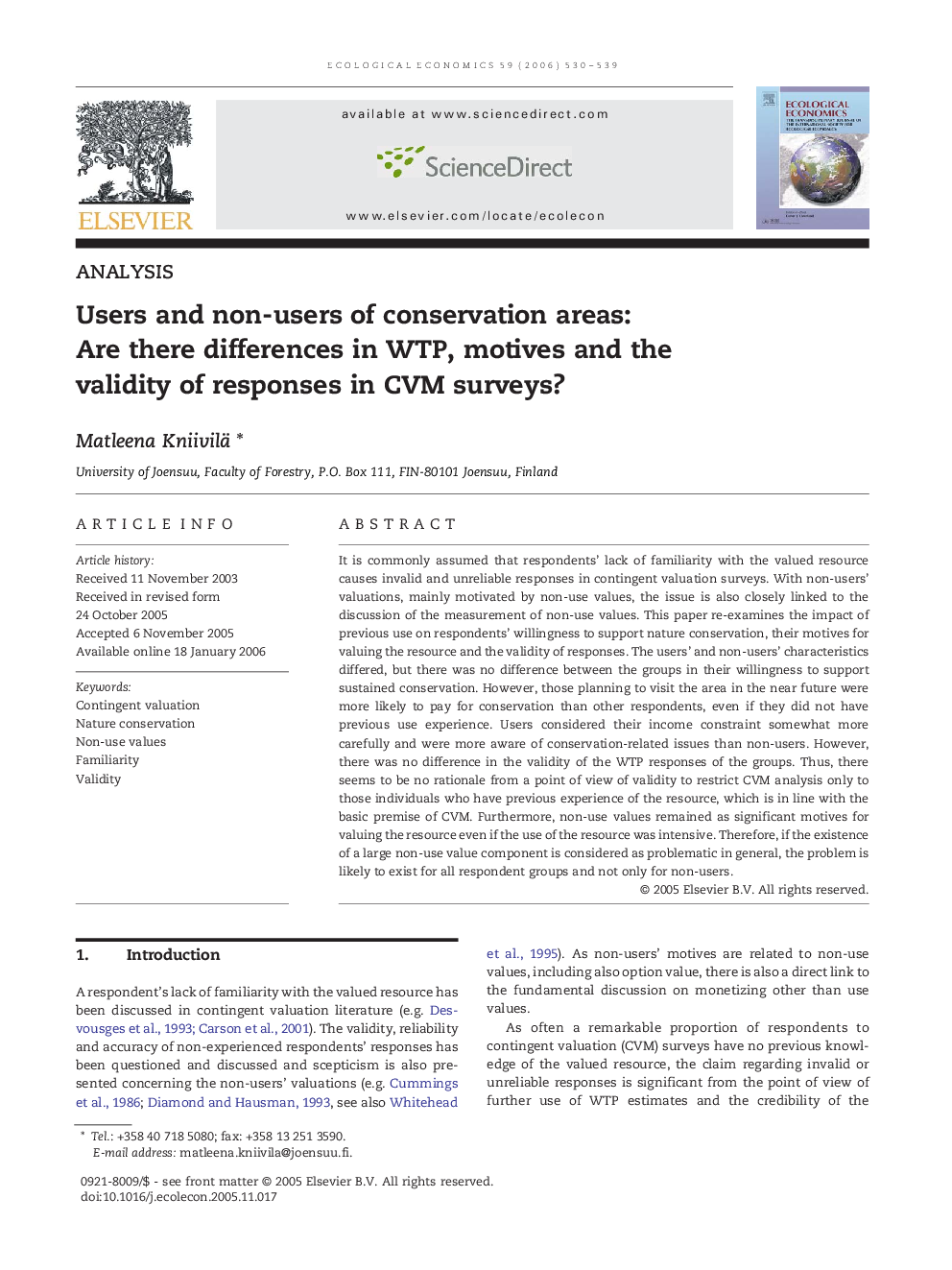| Article ID | Journal | Published Year | Pages | File Type |
|---|---|---|---|---|
| 5052169 | Ecological Economics | 2006 | 10 Pages |
Abstract
It is commonly assumed that respondents' lack of familiarity with the valued resource causes invalid and unreliable responses in contingent valuation surveys. With non-users' valuations, mainly motivated by non-use values, the issue is also closely linked to the discussion of the measurement of non-use values. This paper re-examines the impact of previous use on respondents' willingness to support nature conservation, their motives for valuing the resource and the validity of responses. The users' and non-users' characteristics differed, but there was no difference between the groups in their willingness to support sustained conservation. However, those planning to visit the area in the near future were more likely to pay for conservation than other respondents, even if they did not have previous use experience. Users considered their income constraint somewhat more carefully and were more aware of conservation-related issues than non-users. However, there was no difference in the validity of the WTP responses of the groups. Thus, there seems to be no rationale from a point of view of validity to restrict CVM analysis only to those individuals who have previous experience of the resource, which is in line with the basic premise of CVM. Furthermore, non-use values remained as significant motives for valuing the resource even if the use of the resource was intensive. Therefore, if the existence of a large non-use value component is considered as problematic in general, the problem is likely to exist for all respondent groups and not only for non-users.
Related Topics
Life Sciences
Agricultural and Biological Sciences
Ecology, Evolution, Behavior and Systematics
Authors
Matleena Kniivilä,
